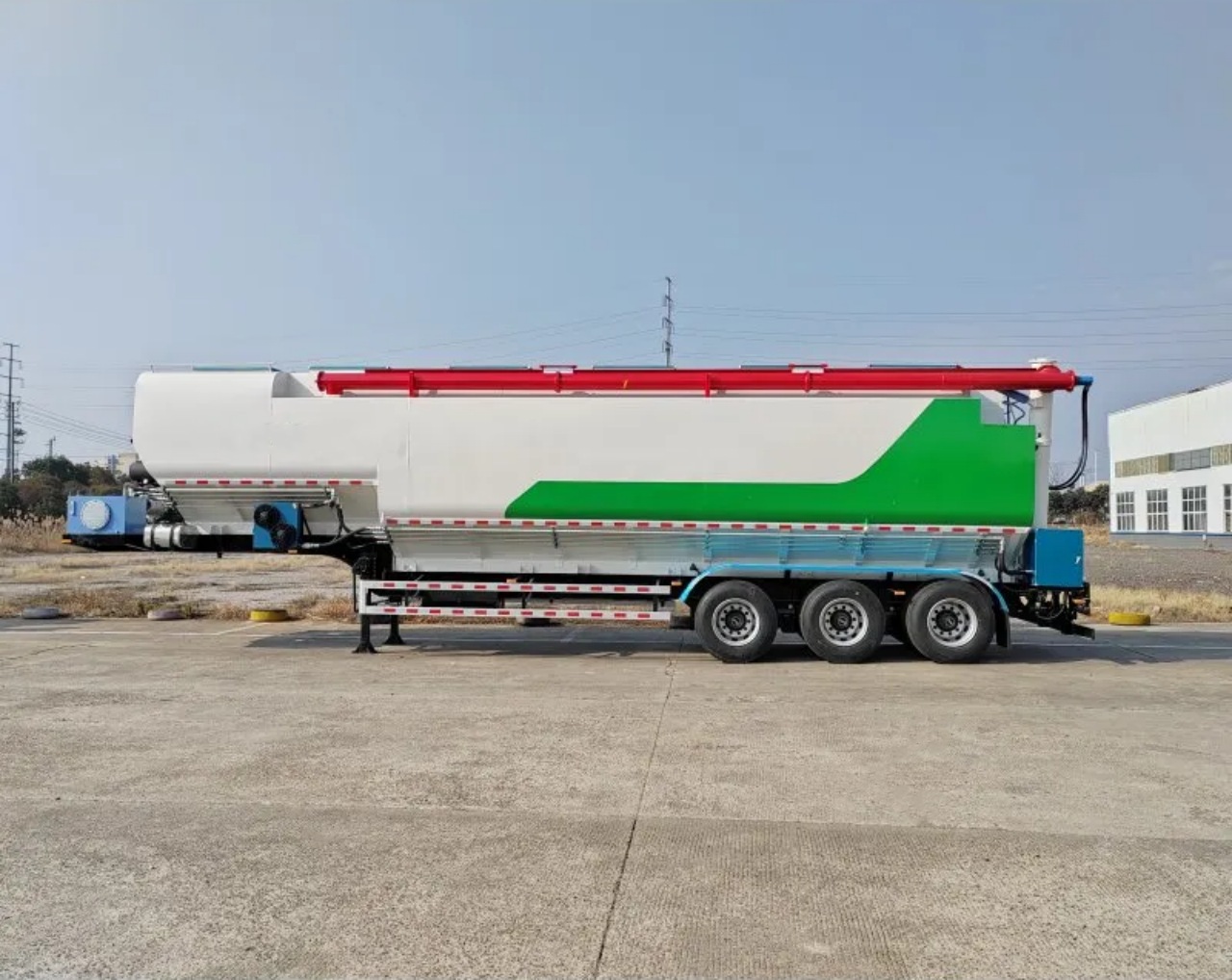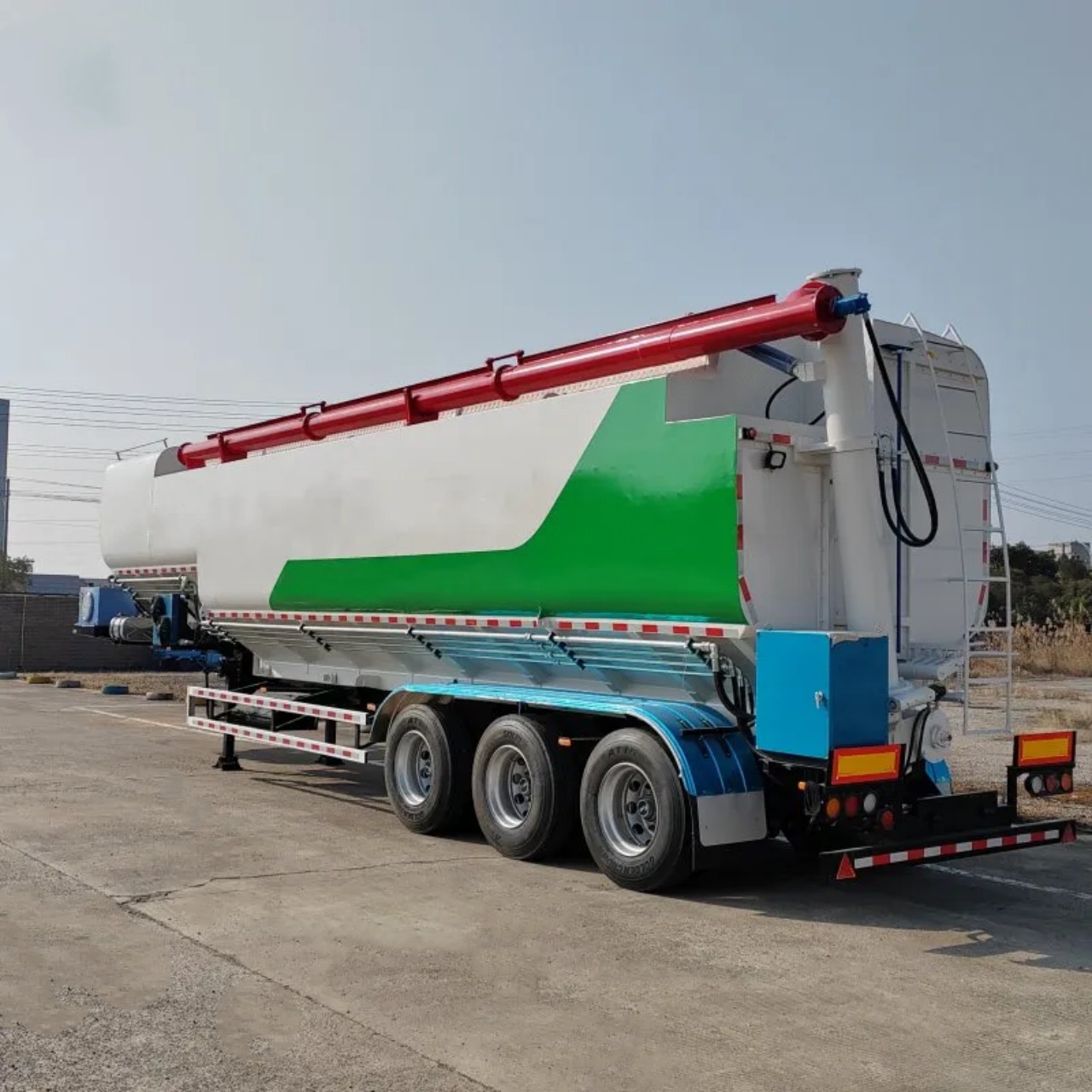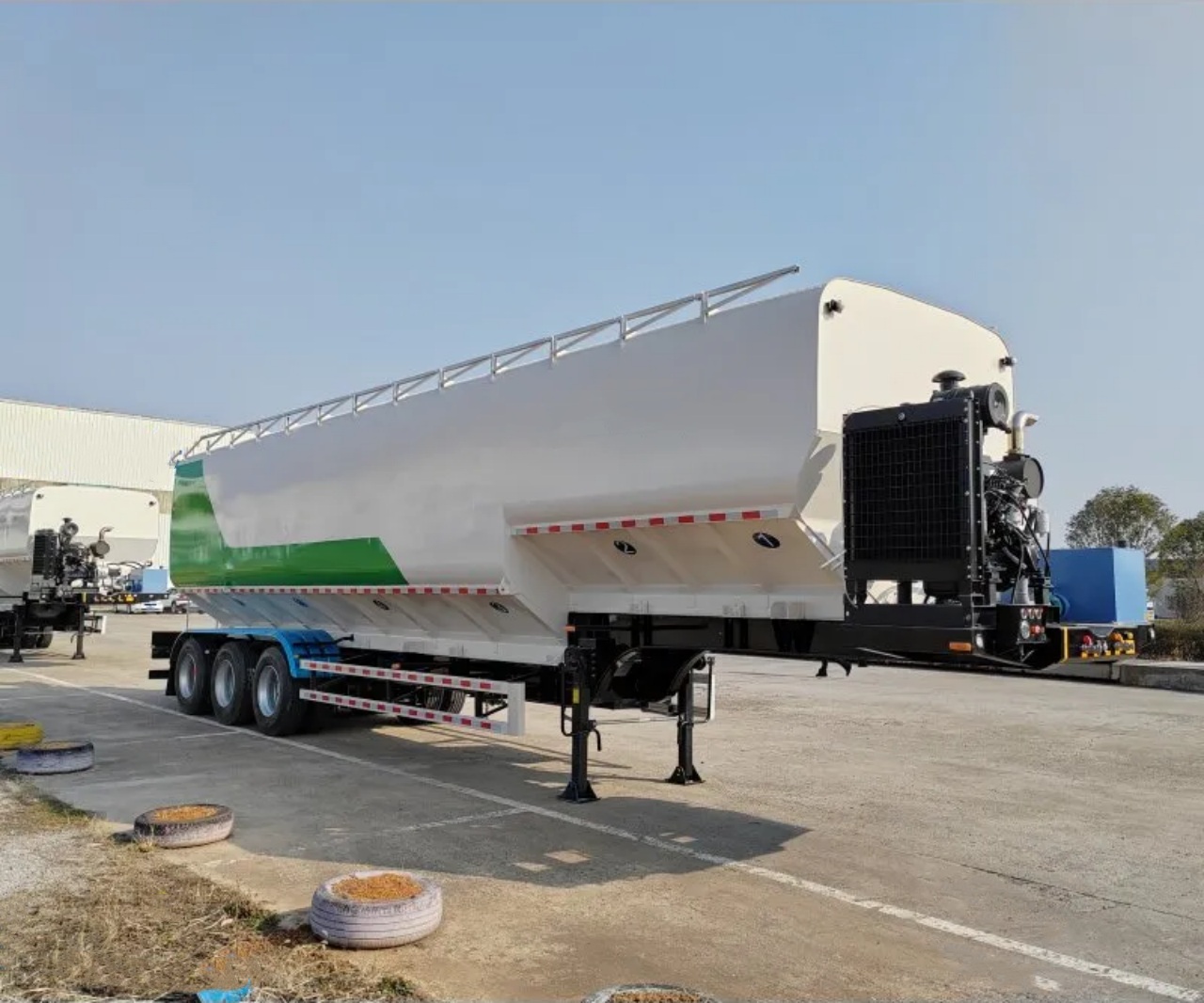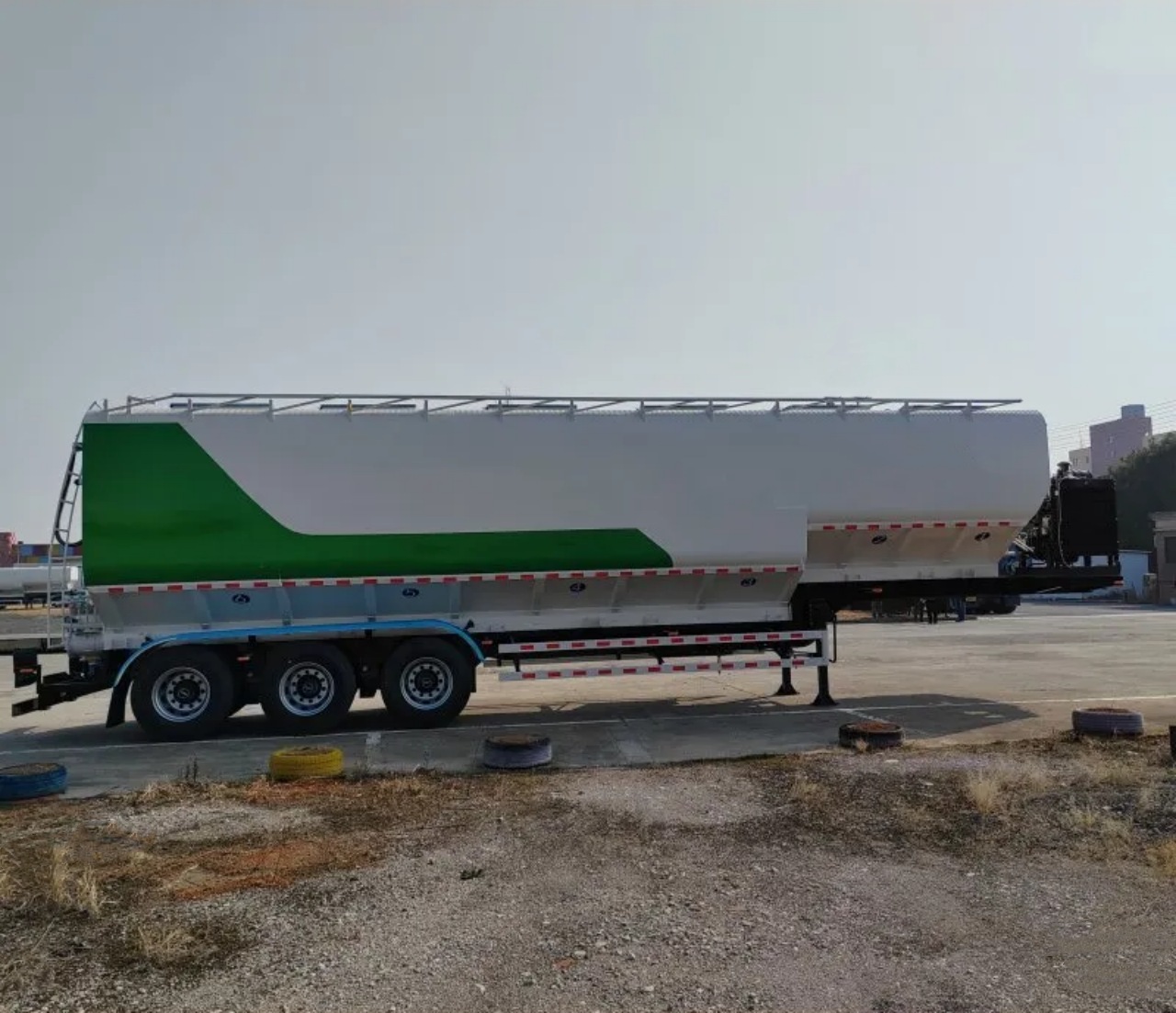Pneumatic trailers, also known as dry bulk trailers or pneumatic tankers, are specialized vehicles designed for hauling dry, free-flowing materials in bulk. Unlike traditional trailers that use gravity or mechanical unloading systems, pneumatic trailers utilize compressed air to move cargo through hoses and piping systems. This method of loading and unloading makes them an efficient and hygienic solution for transporting a wide range of dry goods.
In this article, we will explore what pneumatic trailers haul, the industries that rely on them, how they work, and the advantages they offer in the transportation of dry bulk materials.
How Pneumatic Trailers Work
Before delving into what is hauled in a pneumatic trailer, it’s helpful to understand how the trailer functions. Pneumatic trailers are pressurized tanks, typically cylindrical, that use a combination of air pressure and gravity to unload cargo. These trailers are equipped with multiple cone-shaped hoppers at the bottom and a system of air lines and valves that control the flow of material.
When unloading, compressed air is forced into the tank, fluidizing the dry bulk product and allowing it to flow smoothly through discharge lines to its destination, such as a storage silo or hopper. This makes pneumatic trailers especially useful for products that are fine, dry, and need to be protected from contamination.
Common Materials Hauled in Pneumatic Trailers
Pneumatic trailers are incredibly versatile, and they are used to haul a wide variety of dry bulk goods across several industries. Below are the most common types of materials transported using pneumatic trailers:
1. Cement and Fly Ash
One of the most common applications of pneumatic trailers is in the construction industry, where they are used to transport cement and fly ash. These materials are extremely fine and must be kept dry to avoid hardening or clumping. The sealed design of pneumatic trailers protects them from moisture, while the pressurized unloading system allows for efficient transfer into storage silos at concrete plants.
2. Sand and Lime
Industrial sand, particularly frac sand used in oil and gas operations, is frequently hauled in pneumatic trailers. Similarly, lime—a key material used in water treatment, agriculture, and construction—is another dry bulk material that benefits from the enclosed, clean transport that pneumatic trailers offer.
3. Plastic Pellets and Resins
The plastics industry uses pneumatic trailers to transport plastic pellets and resins between production facilities and molding plants. Because these materials are lightweight and must be kept free from contamination, pneumatic tankers are ideal. Specialized versions of these trailers often include filters and lining to protect sensitive plastic materials.
4. Flour and Food-Grade Products
Food-grade pneumatic trailers are designed to meet sanitary standards and are used to haul flour, sugar, starch, and other food ingredients. These trailers are made with stainless steel and often include features like smooth internal walls, clean-out ports, and air filtration systems to prevent contamination and ensure compliance with food safety regulations.
5. Dry Chemicals and Powders
Pneumatic tankers are also used in the chemical industry to transport dry chemicals and powders, such as sodium bicarbonate, calcium carbonate, and other industrial compounds. These materials require precise handling and contamination-free environments, which pneumatic trailers are well-equipped to provide.
6. Animal Feed and Agricultural Products
In the agriculture sector, pneumatic trailers are used to haul animal feed, soybean meal, cornmeal, and other grain-based products. Their enclosed nature ensures that these products are protected from pests and the elements during transportation.
Industries That Depend on Pneumatic Trailers
Given the broad range of materials they can haul, pneumatic trailers are essential to several industries. Some of the primary sectors include:
- Construction: Transporting cement, sand, lime, and fly ash to construction sites or concrete mixing plants.
- Food and Beverage: Hauling ingredients to food processing plants while maintaining food safety standards.
- Petrochemical and Plastics: Moving plastic pellets and raw materials to manufacturing sites.
- Agriculture: Delivering feed and grain products to farms and feed mills.
- Mining and Energy: Transporting sand for hydraulic fracturing operations.
Advantages of Pneumatic Trailers
Pneumatic trailers offer several advantages that make them a preferred choice for transporting dry bulk goods:
1. Contamination-Free Transport
Because the materials are sealed within the tank and do not come into contact with the external environment, the risk of contamination is minimized. This is especially important for food-grade and chemical products.
2. Efficient Unloading
The use of compressed air allows for fast and efficient unloading, even in locations where traditional gravity or auger systems wouldn’t work. This can reduce downtime and improve overall logistics.
3. Versatility
With the right setup, a single pneumatic trailer can handle a variety of materials. This adaptability makes them cost-effective for haulers who serve multiple industries.
4. Environmental Protection
The enclosed system prevents dust and particulate matter from escaping during transport and unloading, contributing to a cleaner and safer working environment.
5. Reduced Labor and Equipment Needs
Because unloading is handled by air pressure rather than by physical labor or additional machinery, pneumatic trailers often require fewer personnel and less equipment to operate.
Types of Pneumatic Trailers
There are several types of pneumatic trailers, tailored to specific types of cargo and job requirements:
- Standard Dry Bulk Trailers: Used for general-purpose hauling of cement, sand, lime, and similar materials.
- Food-Grade Trailers: Made with sanitary materials and features to transport edible goods.
- High-Cube Trailers: Designed for lightweight, high-volume products such as plastic pellets.
- Dense-Phase Trailers: Suitable for heavy and abrasive products that require controlled airflow during unloading.
Conclusion
Pneumatic trailers are vital to the transportation of dry bulk materials across numerous industries, including construction, agriculture, food processing, plastics, and chemicals. Their unique pressurized unloading systems, enclosed design, and adaptability make them the go-to solution for hauling a wide array of free-flowing, dry materials.
Whether transporting fine cement powder to a concrete plant or delivering food-grade flour to a bakery, pneumatic trailers play a critical role in ensuring products arrive safely, cleanly, and efficiently. Their ability to handle complex logistics with minimal contamination and high reliability cements their status as one of the most versatile tools in bulk material transport.





